#interrelation and other works
Explore tagged Tumblr posts
Text
Very shy but here’s some spoken words. Rite of Solitude, from Interrelation and Other Works, available on Amazon and more
#writer#writing#poetry#poems#poem#inspiration#original poem#poet#prose#reading#spoken word#spoken poetry#spoken poem#spoken english#spoken thoughts#poems and quotes#nicholaskyleedwards#nicholas kyle edwards#author#poems and poetry#interrelation and other works#interrelationandotherworks#book#books and reading#reader#read#spilled writing#spilled poem#spilled emotions#spilled poetry
63 notes
·
View notes
Text
#fanfic#link#this pixiv user is writing galileo/last man/invisible crossovers#the stories are only vaguely interrelated; the thread they have in common is the idea#that minami's work in japan brings him into contact with the characters from those other j-dramas#they are mostly yukaoru in flavor which is how i found them: a tweet in the yukaoru tag#one of them is quite smutty and i enjoyed that :D#(spoiler: utsumi keeps mentioning minami to yukawa along with that he looks like him and yukawa gets jealous)#(claiming ensues)#buuuut this author has yet to introduce minami to yukawa#i can think of one way that could be done but i'll just wait hopefully for them to write it
2 notes
·
View notes
Text
Yknow
I was all set to do homework when i got home today after work
but
i am now both super tired and super miffed that i really just need to unwind
#i might do a discussion post#but ultimately imma do hw tomorrow after work since i have a shorter shift#prioritizing in this order: animal human interrelations. asl. fiction. architecture. lit intro#ill probably finish the first. maybe the second#third is being hopeful#the other two likely wont get done til monday/tuesday#amber's shit you can ignore
1 note
·
View note
Text
in the same way, what ends up being called "a disability" is not politically neutral. you can't really talk about what is or isn't a disability without acknowledging the ableist history that created the disability category. something being considered a disability is only meaningful in relation to what a society expects a person to be able to do, and there is a complex web of social and political pressures that reinforce this
governments will always have stricter definitions of what counts as disabling because governments are responsible for allocating resources to vulnerable populations. the greatest pressure on them is to tighten and tighten the category until disability is defined out of existence. this is also true of institutions such as universities, if they are legally required to provide services to their disabled students
normalising social pressures, however, kind of work in the opposite direction. their goal is to restrict the definition of 'normality', and to punish those who do not conform to this. because 'normal' is an aspirational identity rather than anything that is actually functionally achievable, these pressures only work if 'normal' is incredibly restrictive
this doesn't mean that there is some magical social pressure out there that tells everyone to identify as 'disabled'. there is actually a lot at play to prevent people from giving up on the strive to be normal. what it does mean is that there is a large category of people who would likely identify as 'not abled' in some capacity without actually defining themselves as 'disabled'. because. again. there are ableist histories that mark out 'disability' as a dirty word and as an identity that is best avoided
anyway what I mean to say is. disability isn't an objective category and it never will be. it's all a series of complicated and interrelated political pressures, just like with any other human category under the sun
337 notes
·
View notes
Text
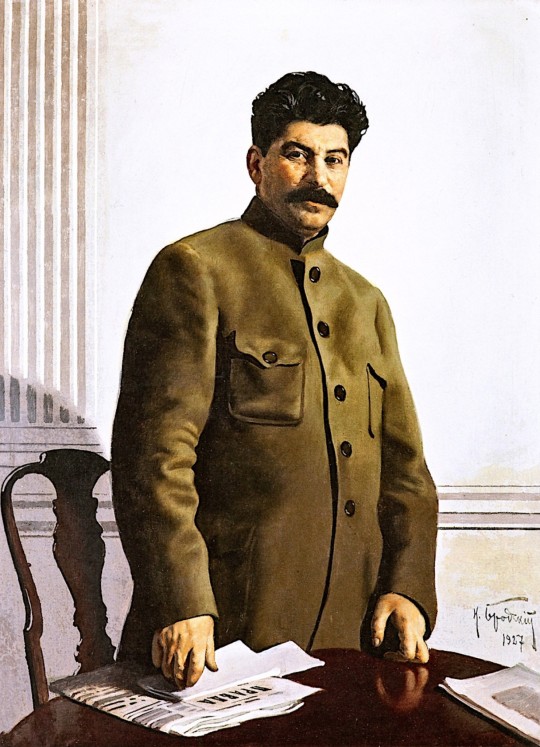
"Theory is the experience of the working class movement in all countries taken in its general aspect. Of course, theory becomes purposeless if it is not connected with revolutionary practices just as practice gropes in the dark if it's path is not illuminated by revolutionary theory, but theory can become a tremendous force in the working class movement if it is built up in indissoluble connection with revolutionary practice; for theory, and theory alone, can give the movement confidence, the power of orientation, and and an understanding of the interrelation of surrounding events; for it, and it alone, could help practice to realize not only how and in which direction classes are moving at the present time, but also how and in which direction they will move in the near future. None other than Lenin uttered and repeated scores of times the well-known thesis that: "without a revolutionary theory there can be no revolutionary movement."
- J.V. Stalin, The Foundations of Leninism
#joseph stalin#quotes#truth#the foundations of leninism#marxism leninism#portrait#by issac brodsky#theory
90 notes
·
View notes
Text
The Miracle of Teddy Bear Saved the Gays

Last weekend, both @twig-tea and I had time off and were in the mood to binge something, so Twig suggested we finally watch The Miracle of Teddy Bear. Both of us had missed it while it was airing live (because it didn’t have international distribution) and had been given the impression by others that it had a sad ending that included some anti-queer messages. It was also very long, so we were not exactly rushing to get to it. But we are stubborn and like to judge things for ourselves, so we decided since we had the time and the show was now available, we should jump in. And imagine our surprise when we found out everything we had been told about it was wrong (we have our theories about why). This is one of the best queer dramas we have ever seen, with phenomenal acting, writing, and direction, and we have so much to say about it. The post that follows is co-written by the two of us. Strap in, folks, because it’s a long one.
If you haven’t seen this show yet and don’t want any spoilers, stop reading this right now and head over to YouTube, where international fans can now watch it for free with English subtitles. We’re going to go deep on the show below, and because this drama is designed to slowly reveal information in a very deliberate way, nearly everything counts as a spoiler. We’ll try not to give too much away in the early sections, but be warned!
The Story
The Miracle of Teddy Bear is the tale of a deeply traumatized gay man in desperate need of healing, and the teddy bear who comes to life to help him. In the process of taking care of his person, our bear uncovers deep family trauma and many secrets and lies, accidentally solves crimes, makes lots of friends, heals a family, and saves several lives. He is a very good bear, and through this adventure he contemplates his own existence, learns how to be human, and discovers what it means to truly love someone.

This is primarily a family drama with important things to say about queer truth, and while it includes several bl storylines, it is not a romance. Intertwined with the family drama is a bl show within the show and a series of interrelated mysteries that slowly get unraveled as the story goes on. One of the things this show does best is parcel out information from various perspectives at the perfect time to keep the viewer one step behind—we found ourselves constantly almost guessing what the show was going to do next, but it always chose a direction a little to the left and surprised us in the best way.
In the end, every question we asked was answered, and every time we thought a character’s motivation felt a little too shallow, we were given more. The experience of watching this show was deeply satisfying and really made us feel seen. This show gets us.
The Characters

The Bear: Tofu
Tofu is the titular teddy bear who comes to life via drama magic and does his best to support his person. He starts the series incredibly innocent, and the show and his actor, Inn Sarin, do an incredible job of depicting the change in him as he lives life as a human, becoming more complex and less naive. Tofu is the heart of the show, and it is his love and kindness that enable the growth of the other characters in this story.
The Core Family: Nut, Na, and Kuenchai
Nut is our protagonist, and his struggles with life as a gay man are the soul of this story. He lives with his mom, Na, and their dog, Kuenchai, and Tofu is his beloved teddy bear. Yes, Nut is a cranky ass grown man with a beloved teddy bear. It will make sense eventually, we promise. Nut is a bl novelist working through old trauma via adapting his work for the screen. Na is a woman who has been Going Through It, and while we start the story with only the vague sense that something is not quite right with her, we spend a lot of time on her history as well as her growth in the present until we get the full picture. The way Nut and Na’s stories are tied together gets to several of the core themes of this show (discussed more below).
The Sides: Gen, Song, Prib, and the nosy neighbors
Our cast of friends and allies who support Nut and Tofu and have romantic trials and tribulations of their own. Without giving too much away, we’ll just say this: all of these characters have satisfying arcs, and some of them may have caused us to squeal in delight.
Specters of the Past: Neung and Tarn
Telling you literally anything about them is a major spoiler so just know they are here and they are important and you will fully understand why and how by the end. Oh yeah, and Neung looks exactly like Tofu (or should we say Tofu looks like Neung?) for Reasons (which are explained! We love this show).
Villains: Saen, Sib, Jan, and Parit
Expect these four to show up often and cause a lot of trouble. Their motives and exact crimes are revealed over the course of the show.
Other Elders: Anik, Juea, Kanya and Sittha
They are mostly here to serve a few key plot functions and represent a spectrum of parental figures (related by blood and not) and acceptance of queerness.
And we cannot forget: The inanimate objects
In this show, inanimate objects can come to life under a certain set of magical conditions, and they are Tofu’s friends and helpers along the way. Some of their stories are shockingly touching! They also add some needed levity to the show, especially the grumpy ones. Special shoutout to the cactus and the spare blanket, our crime solving MVPs. We have to admit, the animation for these took a bit of getting used to, but within a couple of episodes we were cheering these creepy blinking eyes on.

The Themes
And here is where we start to get into spoiler territory about specific character arcs. This show had so many clear and well-articulated themes, and they stayed consistent throughout the story.
Queer people can be happy

This is stated explicitly as well as demonstrated through multiple storylines: gay men can love each other, have good relationships and fulfilling sex lives, and get their happy endings. Those who argue that people should fight against their queerness because it will make their lives harder and keep them from happiness are not just wrong, they have it backwards.
Queer people can only be happy by living their truth

This is perhaps the main thesis of this show, and it comes across in so many ways over the arc of the story. We see this theme exemplified in particular through Nut, Tarn, Song, and Gen, with each of them representing different versions of the queer experience that shape who they are and how they show up in the world. Even before the story tells you, it’s clear what kind of experiences each has had from his relationship to his own queerness and his general demeanor and outlook on life. Nut has survived an abusive homophobic father, and that shows up in his anger, his self-protective rejection of others, and his struggle with emotional regulation. Gen has been raised by loving and accepting parents who support his choices in all ways, and this shows in his good humor, balanced perspective, and confidence to be himself. When we say good media should show, don’t tell us its point, this is a fantastic example of what that means.
Accept and love your queer children or pay the price

Relatedly, this story is very interested in the consequences for parents who fail their queer children, and explores a whole spectrum of acceptance from enthusiastic support to negligent ambivalence to misguided suppression to violent bigotry. We see so many different parents and parental figures react to learning about their gay sons and gain insight into them by how they respond—and only the ones who manage to get it together to love and support their kids get to keep their families. Critically, the adults who fail their queer children are convinced they’re acting in their best interests at the time, and we are along for the ride as the redeemable ones go through the stages of first admitting they were wrong but still thinking their intentions justify the pain they caused to fully acknowledging the damage they have done and making amends.
Be patient with others, you never know what they’ve been through

That said, the show also invites us to stop and consider what might be behind aberrant behavior before judging it. Tofu is unfailingly patient with others, and even with the worst people in this story, he always seeks to understand why they are behaving a certain way before giving up on them. The show slowly and methodically reveals information that recontextualizes things we thought we understood and encourages us to keep digging for empathy and missing context. People in this story behave very badly and make a lot of mistakes, but a lot of it becomes more understandable once you have the full picture.
Unprocessed trauma will prevent you from healing and cause you to perpetuate harm on others

Speaking of bad behavior, so much of what’s wrong in this story is driven by unprocessed trauma of one sort or another. Nut’s anger is at its core a deep hurt from being betrayed by the person he trusted most to be on his side. Na’s refusal to live in reality causes her to continue to hurt herself and her son. Saen’s denial about his own actions leads to far-reaching consequences he could not imagine. And the healing process depicted in the show is not linear; people who have made mistakes in the series make them more than once and advance and regress as the situation around them changes.
People are responsible for their own actions and inactions

And while the show is clear that trauma is the source of the bad behavior of these characters, it is also clear that this is not an excuse. Everyone in this story is held to account for the things they do, as well as the things they don’t, no matter how understandable their reasons are. The people who refuse to heal face serious consequences in addition to seeing the damage their unprocessed trauma causes others.
Noble idiocy leads to everyone being unhappy

One of the biggest sources of said unprocessed trauma in this story is characters making self-sacrificial choices for the ostensible benefit of others and bringing misery to everyone in the process. We love a drama that recognizes noble idiocy for the selfish and destructive act it truly is and clearly says you have to communicate with your loved ones if you don’t want to make a mess of everyone’s lives.
You can’t appease an abuser

No amount of hiding who you are or making yourself small will convince an abuser to treat you better or guarantee your safety. This theme is most obvious in the main storyline between Nut, Sib, and Na, but Jan is another example of a manipulative and emotionally abusive character who other characters continually try to play nice with, to no avail. She takes every opportunity to be cruel, whether the person she’s talking to is kind or combative in return. The show reinforces that abusers will always find an excuse to justify their behavior; changing yourself for them is pointless.
Love is wanting the best for someone, even if that means letting go

This is really the show’s core point where romance is concerned: being with you may not actually be what is best for the person you love, and if your love is true you have to accept that. The people who could not see this—Saen and Jan—were the ones who continued to cause harm to their loved ones and themselves, while the characters who honestly worked towards the happiness of their beloveds even if that happiness was not with themselves—Tofu, Tarn, and eventually Prib—were rewarded by seeing that happiness play out and ended our story truly content. The MVP of this theme is Tofu, whose pure teddy bear love for his person became more complicated and selfish as he became more human. But in the end, he held to the truth at his core that Nut’s happiness was his happiness.
You can have more than one great love, and one doesn't tarnish the others

Which brings us to one of the most beautiful takeaways from this show, and something that dramas so rarely do well. Nut loves two different men, neither more than the other, and he never chooses between them. They both hold important meaning in his life and he honors that whether they are with him or not. When Nut is with Tofu, he remembers his past love with fondness but he is clear that these memories do not make his love for Tofu any less real. A lesser show would have had those moments where Nut was thinking about his past cause him to distance himself from Tofu. But in this show, Nut sharing his past and working through his lack of closure was when he and Tofu had some of their closest and happiest moments together. This show is extremely clear that we can have happiness with more than one person over the course of our lives, and it is not only okay but encouraged!
The Resolution
From here, we will be talking about the ending, and so by necessity will no longer be avoiding major spoilers. If you’re intrigued by the above and want to avoid being spoiled fully, stop now! One of the things that is so brilliant about this show is the way information is slowly revealed, so if you think you would like this show we recommend experiencing it for yourself. If you’re still not convinced and need to know the ending before you decide, read on.

In our view, this story ends exactly as the show signals it will from the very beginning—and the way it should—and the ending is unambiguously a happy one. Tofu realizes that he and Tarn’s life forces are tied together, that it was Tarn going into his coma that caused him to awaken, and that as long as he continues to live as a human, Tarn will not recover. We and the characters have come to love Tofu in his guise as a human, but the truth is he does not belong there—he is a teddy bear, and for him to stay by robbing an actual human being of their life would be wrong. The story took pains throughout to show us how tenuous and restricted Tofu’s existence is, because he is not a real person and thus can’t live a full life (for example, he can’t get a job or safely leave the house because he doesn’t have documentation or any life experience). We also see Tofu struggle so much with the added complexities of the human experience that he becomes ill with overwhelm multiple times. He repeats to us through the whole story that all he really wants is to be a comfort to Nut. While he finds value and joy in being human, it does not change who he is at his core. And so he allows himself to be poisoned by Jan, sacrificing his human existence to bring Tarn back and exposing Jan and Saen’s crimes in the process.

With this decision, the other characters get the chance to mourn him and move on. Nut grieves, finally makes the connection between human and teddy bear Tofu, goes to therapy (!), makes peace with his mother, and writes his love story with Tofu as his next show. Tarn wakes up and begins his recovery, and he and Nut slowly reconnect and rekindle their relationship over time. Na finds joy in her lucid moments and enjoys time with her family, finally free of the hell Saen and Sib unleashed on her life. Gen and Song get their happy ending with acceptance from Song’s dad, and Prib’s fixation on gay men becomes clear when her new female love interest enters the scene (let’s go, lesbians!). We get confirmation that the nosy neighbors are, in fact, an elder gay couple. Even Kuenchai and some of the inanimate objects have character arcs! Kuenchai is instrumental in making sure Nut is reunited with bear Tofu, and we get to see a slipper gain some independence from her other half and a grumpy bolster cuddle in to comfort her people when they need it.

We end our story with several happy families who love their gay children and a call for marriage equality via Nut and Tarn deciding to marry whether it’s legal or not. Tofu is a bear again but his human life is very much not forgotten—Nut speaks to him every day, honors the love they shared, and talks about him openly with Tarn. And we even hear from Tofu again, see a final moment between him and Nut in a beautiful dream, and are reassured that Tofu is happy to still be with Nut in his original form and to see him living so well. It’s everything he wanted, and he made it happen. He truly is the very best bear.

The Purpose
We wanted to take some space to get a little extra meta and talk about why this show matters so much in the broader queer media landscape. First, it was a landmark queer television event in Thailand—please read this post by @flowerbeasblog to get the background on its significance in the cultural landscape. This show was broadcast very intentionally to educate and send a message to a broader audience in Thailand than is typically reached via bl dramas. And that’s why understanding and taking its themes seriously is so very important.
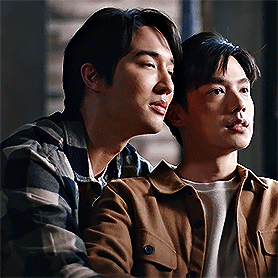
This is a story that is deeply rooted in queer truth, written by a queer man who wants people like him to be seen and understood. The show puts forward an unapologetically pro-gay message on broadcast television (on a major national network! during primetime! that does not shy away from the sexual component of queer love!) and embeds important political commentary in a fantastic and engaging story in a format familiar and comfortable for the Thai audience. It’s not meant to be received as a romance, and its nuanced and mature take on love and relationships is certainly not designed for ship wars. The writer even turns directly to the camera and underlines this in the final episode: while he respects the importance of bl in the media landscape, he has a bigger agenda in mind for this show and important things to say.
And that’s why some of the discourse around this show is so frustrating. A small portion of international fans who watched this show live seemed to misunderstand it deeply and created such a false impression of it that it caused others to stay away. Contrary to some of the takes out there, this show does not have a sad ending, Tofu’s resolution is not remotely anti-queer, and there is no woman who ends up with Nut (we are so confused that this was anyone’s interpretation; Nut at every age and several times within the show explicitly shouts about how very extremely gay he is). To see this story as a tragedy because Tofu “dies”—which he doesn’t; his human body disappears but he returns to being a conscious and content teddy bear—is to misunderstand Tofu’s character journey, his narrative purpose, and his agency. We can only assume that shipping got in the way of comprehension here, and people who wanted to see human Tofu and Nut end up together focused on that to the exclusion of pretty much everything this show was saying and doing.

At the end of this story, Tofu is happy. To think that Nut was better off with Tofu than with Tarn is to not allow for the complexities of human experience; Nut did love Tofu, but he loved Tarn, too, and their relationship was a positive force in his life both before and after Tofu entered it. And Tarn was an actual gay human man in a coma who could not wake up while Tofu existed. Tofu was the creation of Tarn’s love for Nut; his existence was limited, and he found being a human extremely difficult. All Tofu wanted was to be Nut’s teddy bear and stay with Nut forever. He wanted Nut to be happy, because Tarn wanted Nut to be happy, and during his time as a human he worked to enable that happiness. He was instrumental in moving forward several stuck characters and uncovering many secrets, all of which were necessary for Nut to get to where he ends up at the end of the show. Being in a relationship with Nut was a bonus. He enjoyed the experience of being in love with Nut, but in the end he chose to sacrifice his human life so that Nut could have a permanent, lasting happiness with someone who was real. Tofu’s human death is not an example of the bury your gays trope; in fact, it is a total rebuke of it. Tofu, and this show, saved the gay men in this story and gave them full and happy lives. We cannot recommend watching and supporting this show enough.
179 notes
·
View notes
Text

Like the Movies
about: a series of my favorite movies reimagined with (some of) the boys of seventeen.
notes: the movies inspired the fics, please don’t expect it to be an exact word for word reenactment of the films; i had a couple of ideas and decided to roll with it. unfortunately i will not be doing all of the boys as some of them are key side characters unless specifically requested! the stories are interrelated in some way; it won’t be explicitly stated but try and look for crumbs!
also! most if not all the y/ns in the fics are directly stated to be female due to some of the stories heavily relying on y/n’s biological sex to be female.
currently working on: pretty girl !

Pretty Girl
based on: Legally Blonde
pairing: law student! joshua x heiress! reader // ex boyfriend! wen junhui x reader
synopsis: the youngest of 3 successful sisters, no one expects you to accomplish anything save for sitting still and looking pretty, but after your boyfriend dumps you for a much more educated girl, you get your eldest sister to pay your way into harvard law where you meets joshua hong, who does not seem to appreciate how lightly you takes things.
tropes: opposites attract, popular girl x nerd boy but with a twist, they start off at the wrong foot, it gets resolved, joshua will say hurtful things along the way though

A Sweet Haven
based on: Notting Hill // Maid in Manhattan
pairing: golden retriever!mingyu x single mother!y/n
synopsis: never in your wildest dreams did you expect acclaimed actor, kim mingyu, to stumble into your quaint bakery and ask you to hide him from the onslaught of paparazzi. what began as one chance encounter turns into constant visits to you and your daughter. but just as you begin to see a future between the two of you, the reminder of his fame and reputation hovers over the both you.
tropes: forbidden romance, single mom! reader, mingyu’s an actor, secret relationship

Hot and Cold
based on: Pride and Prejudice // Emma
pairing: wonwoo x reader, seokmin x oc
synopsis: as the eldest child of your family, you have only ever wanted the best for your siblings. so when your sister confesses to being in love with someone— you do everything you can to make sure they both end up together… but the infuriatingly handsome brother of your sister’s beau seems to be against the union altogether.
tropes: enemies to lovers, they really don’t like each other at first, just two people being protective of their younger siblings, elder sibling trauma written by an only child LOL
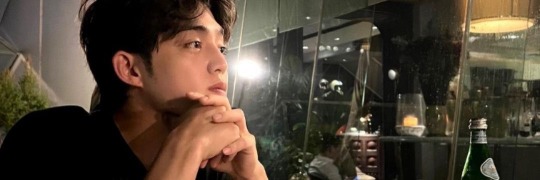
Mr and Mrs. Choi
based on: Mr. and Mrs. Smith
pairing: agent!scoups x agent!reader
synopsis: you and seungcheol (code name: scoups) have a bit of a work place rivalry going on, and the agency wants to put you both to the test by pairing you up with each other in a mission that would determine who gets the promotion�� the catch being that you both would have to play a married couple.
tropes: rivals to lovers, technically also coworkers to lovers, fake marriage au, a lot of back and forths, cheol is a teasing lil shit with y/n, will very much include the old “the target is gonna notice we’re tailing him hurry let’s make out”
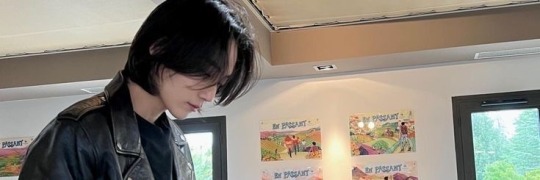
Love Me Tomorrow
based on: 2 week’s notice // flipped
pairing: jeonghan x reader
synopsis: your friends and coworkers say you’re foolish for harboring a crush on the worst man ever; aka your boss. yoon jeonghan is a successful ceo, and he is well aware of the hold he has over you; often using you to perform minute and tiresome errands. but what happens when you finally draw the line?
tropes: unrequited love (initially), she fell first but he fell harder, hannie’s an asshole here ngl, he gets better i promise, y/n is on a path to self love, when hannie realized he loves her he’s so pathetic i swear

Something Borrowed, Something New
based on: My best friend’s wedding
pairing: minghao x extraverted!reader, slight vernon x reader, and slight minghao x oc
synopsis: you love your fiancee you truly do, and you were very sure he felt the same long enough to propose to you; but he’s quiet, and well- you’re not. you know this, and so you always make sure you are not too spirited in days where he doesn’t feel it. but when he runs into his old college friends, you could not help but notice how he becomes a lot livelier with his childhood best friend.
tropes: established relationship, opposites attract, golden retriever y/n and black cat minghao, angst, like a lot of it, hao has a girl best friend :(( , two people who don’t communicate because of their own personal reasons
#seventeen#seventeen x reader#svt x reader#angst#fluff#suggestive#svt angst#svt fluff#svt imagines#scoups x reader#joshua x reader#jeonghan x reader#wonwoo x reader#mingyu x reader#the8 x reader#like the movies — satin#minghao x reader
244 notes
·
View notes
Text
Black Family Tree
I mentioned here how I have my own versions of various wizarding family trees, well, here is the Black one. Comprised of the official one drawn by JKR, corrected based on book quotes and my own headcanons. So, it isn't a strictly canon one (added plenty of headcanons and OCs to fill it up), but it's the one I tend to use (image split up for better resolution, but tumblr still killed it a little because it's a big photo):

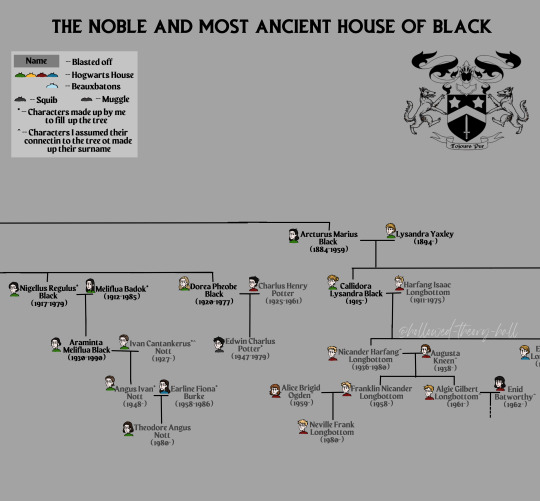

Tree Notes:
Grey square means removed from family tree/disinherited
Greyed-out letters are characters that technically aren't part of the Black family and most of them would not appear on the tapestry, for example.
The shirt color corresponds to that character's house. (Grey shirt stands for muggle/squib. Fleur's light blue shirt stands for Beauxbatons)
Except Sirius Cygnus' shirt is grey because he died too young to have gotten sorted at Hogwarts.
A '*' marks a character I made up the name of. Some are implied to exist in canon and some were just added to fill it up.
A '^' marks a character we know the name of and we know for sure they existed, but I made up their connection in this tree or part of their name (i.e, known last name and I added a first one or vice versa).
Headcanon notes:
Araminta Black is mentioned to be Walburga's cousin who appears on the family tapestry, which is why I added an additional son for Pollux and Irma to make such a cousin possible.
Pollux & Cygnus had their first kids at a reasonable age instead of 13.
I made up appearances for some characters so everyone could have a little face next to their name. I tried to make the appearance logical based on what we see of their genetics in canon when the information was available.
I made up many of the birth/death years, especially for the various witches/wizards who married members of the family, as this information doesn't appear on the semi-canon family tree JKR wrote.
I added my headcanon regarding Molly and Ignatius.
You'll also notice that I added middle names to almost everyone since it seems very common in the wizarding world to have a family middle name. The first son gets the father's name as a middle name, the first daughter gets the mother's as that seems to be the case for many characters in the WW. Some middle name headcanons came from the mother's family and not the Blacks.
I added familial connections to other wizarding families in a way that made sense to me. I mean, there are different "levels" of pureblood, and the Blacks don't have that many families they consider "pure enough" to choose from. Also, their society is so small, that it's likely they are all related if you go four generations back (as Sirius says in OotP: "“The pure-blood families are all interrelated,” said Sirius. “If you’re only going to let your sons and daughters marry purebloods your choice is very limited, there are hardly any of us left.").
As you can see, I decided Euphemia is a Longbottom, since I like this headcanon. There is no deeper reason.
(I'm working on a Weasley/Prewett and Potter trees like this too. Unfortunately, I have to make up way more names in both these other trees. Like, we know Arthur Weasley had two older brothers, one of which I assume is Billius, and the other mistook Harry for his son at the wedding (I named him Hector, as you can see, cause I felt it fit). Arthur's father, Septimus, had six older brothers, who went on to have only sons but basically nothing else is known about them. Similarly, we know Charlus and Fleamont are related, somehow, and I just decided they're brothers in my headcanon and that Dorea and Charlus' 1 son is a squib to explain why he basically doesn't exist in the story. I just really like making up wider wizarding family trees, OC's and headcanons included, it's loads of fun, but I try to be canon-compliant-ish)
#I'm sure I missed some stuff here but I tired my best#it's really fun drawing these trees and coming up with characters/stories to fill them up#harry potter#hp#hollowedtheory#wizarding world#the noble and most ancient house of black#black family#house of black#hollowedheadcanon#hollowed hp redesign#hollowedart
51 notes
·
View notes
Text

Check me out on Goodreads! I’d love to share my writers journey with you 📖🤍 If you’ve had a chance to read my works feel free to star and add to your shelves 🖤🤗
#writer#writing#poetry#poems#poem#inspiration#original poem#poet#prose#reading#goodreads#nicholaskyleedwards#author#spilled writing#spilled poem#spilled emotions#poems and poetry#writng#philo and other poems#interrelation and other works#melancholic and other poems#short fiction#short story#book#books and reading#read#reader#books#spoken poetry#poems on tumblr
46 notes
·
View notes
Text
some more burping scenarios based on a random word generator, because i haven't written anything like this in a hot second!
♡ pillow
♥︎ someone is sleeping next to someone else, {it's up to you whether this is romantic or just a friendly sleepover thing!} but they ate a bit too much before going to bed, leading them to being bloated and really needing to burp. they're able to hold down the air for a little while, but eventually, a burp escapes them against their will. in a panic, and not wanting to leave the room in fear of waking the other person up, they lay face first in their pillow in an attempt to muffle their burps. they still try to hold them in, but at least the ones that do get up are made a bit more quiet by the pillow.
♥︎ bonus: the other person can hear the burps, and is turned on by them, leading to them needing to muffle moans into their own pillow... it certainly wouldn't be "a friendly sleepover thing" after that!
♡blindfold
♥︎ someone decides to let someone else feed them random foods while they're blindfolded and have them guess what they're being fed. it's a fun challenge for a while, but eventually they get to a food that disagrees with their tummy. that on top of being full of so many other foods leads to their tummy becoming really gassy and gurgly. the other person takes notice and asks if they want to stop, but they persevere. eventually, though, the inevitable happens, and the stuffed person burps... just as they are being hand-fed another bite of food. the challenge ends there in favor of the contestant getting a well-earned tummy rub to help them work up the rest of the gas.
♡ brothel
♥︎ imagine, if you will, a brothel in which the workers wear tight clothing that is sure to show off their stomachs. {or perhaps loose clothing to show how bloated their stomachs are, or nothing at all, take your pick!} they eat/drink plenty of whatever is their clients' choosing before they engage in interrelations with one another. maybe the clients opt to make the workers burp by rubbing their bloated tummy, or patting their back. or maybe the burps work their way up naturally when they do that thing that people tend to do in brothels, with the burps reverberating aginst the client, bringing them closer to their climax.
♡ phone
♥︎ someone forgets that they have an important video call that they have to attend, and ends up stuffing themself before having to make said call. they manage to hold in most of their burps during the call, besides a few small ones that they're able to pass off as background noises. that is until they, specifically, are asked a question, and just as they open their mouth to give a begrudging response, a loud burp forces its way out of them, and there's no way that everybody on the other end of the call doesn't hear it. humiliated, they quickly leave the call and pray that nobody ever brings it up. maybe they even start crying a bit out of sheer embarrassment, resulting in a cacophony of sobs and burps.
71 notes
·
View notes
Text
Between 1970 and 1973, rent strikes erupted in towns and cities throughout the Republic of Ireland. These were organised by local tenants’ associations, most of which were affiliated to the National Association of Tenants Organisations [NAoTO] [...], an umbrella organisation for local associations established in 1967. [...] [O]rganisers claimed that at its peak almost half of all council tenants in the state, or approximately 50,000 households, were withholding their rents. These localised campaigns coalesced into a state-wide movement in late 1972 with [NAoTO] declaring a “national rent strike” which lasted until August 1973. At this point, the government conceded to [NAoTO]'s demands including revisions to the B scale differential rent system, a rent freeze for those on fixed (non-differential) rents, [and] better terms for tenant purchase [...]. [T]he long-term consequences are more ambiguous [...]. Nonetheless, it was described in an article in the Irish Times as “undoubtedly the most dramatic [...] victory ever achieved in this century by tenants versus landlords” [within Ireland]. [...]
Despite the scale and significance of these rent strikes, before this project started there was effectively no information available about them. The [Community Action Tenants Union Ireland] CATU rent strike history project aimed to address this situation, which we understood as an important gap in the collective memory [...]. The project set out to leverage the history of the rent strikes to engage people and involve them in the contemporary housing movement by providing an example of the power of collective action and building connections [...]. The project has been ongoing since late 2021 [...].
---
Gray (2018a, 2022) argues that, beginning in the 1960s, the urbanisation of capital created a new [...] working-class struggle in Italy, [...] characterised by divisions related to suburbanisation and geographical fragmentation. [...] Clare's (2020) analysis of [...] clandestine textile workshops in Buenos Aires highlights the importance of the spatial dimension [...] by describing how workshops are located according to a distinct socio-spatial strategy that divides the workforce and minimises outside interference, thus ensuring access to cheap, vulnerable labour. [...]
There are [...] connections between political decomposition and the loss of memory and knowledge of struggle, such as in the case of workplace restructuring after conflict to prevent the transmission of knowledge and experience between different generations of workers [...]. Responding to this situation, there has been a growing interest in recovering forgotten or suppressed histories of housing and urban struggles [...].
---
The background to the CATU rent strike history project is the so-called “housing crisis” in Ireland, which, contrary to the idea of a specific moment of crisis, has been a continuous feature of Irish society since at least the 19th century [...]. A persistent challenge faced by CATU and other similar movements is that of overcoming a pervasive sense of disempowerment and persuading people that it is worthwhile to engage in collective action [...]. [T]he [housing] crisis [is not necessarily] a unique moment of dysfunction in the housing system [but is] rather [...] a persistent feature of Irish, and increasingly international, capitalism [...]. [L]and and housing have been deeply interrelated with anti-colonial struggles including the Land War of the late 19th century, the civil rights movement, and anti-internment rent strikes in the 1960s [...].
---
27 oral history interviews were carried out with people who participated in the rent strikes in the 1970s [...] from various towns and cities across the Republic of Ireland [...]. Approximately 2,000 relevant articles published in local and national newspapers between 1966 and 1973 were identified and subject to close reading [...] Further data was gathered through a review of 161 articles about the rent strikes in radical newspapers [...]. Previous analyses have emphasised the atomisation of new suburban council estates and how these were part of a concerted effort to undermine working-class radicalism (McManus 2003). Beginning in the late 1950s, suburbanisation was further accelerated by the state's policy to attract [...] speculative investment in commercial office space and the displacement of working-class communities, in particular from inner-city Dublin [...]. However, [...] that fragmentation was countered in the late 1960s and early 1970s through the widespread, rapid formation of tenants’ associations organised around shared interests [...].
The interviews and newspapers produced by local tenants’ associations demonstrated the organisational density and array of community organisations [...] that fought to improve the conditions of everyday life [...]. Some of the forms of organisation that existed across many areas included collectively built and managed community centres, women's and youth committees, sports clubs, social activities for elderly people, and food cooperatives, amongst others. Illustrating the scale of community organising, in August 1973 the [NAoTO] newspaper reported that the West Finglas Tenants Association was running regular outings to the seaside that were attended on average by 2,000 people transported in 20 double-decker buses. [...] As described by [P.], a rent strike organizer in Ballyfermot:
"Street committees didn't just run the rent strike, they also ran summer programmes. If there was old people to come around at Christmas, we'd arrange for someone to cook an extra bit of dinner. It was more a living thing. It wasn't just a single issue. [...]"
---
All text above by: Fiadh Tubridy. "Militant Research in the Housing Movement: The Community Action Tenants Union Rent Strike History Project". Antipode Online Volume 56, Issue 3, pages 1027-1046. May 2024. [Bold emphasis and some paragraph breaks/contractions added by me. Presented here for commentary, teaching, criticism purposes.]
153 notes
·
View notes
Note
what's your dissertation about? you mentioned it in the siltcord and i'm really interested
oh my god hey I'm so happy you're interested! broad strokes because I've only been working on it for a few weeks but: the current theme is 'resistant landscapes' (both man-made and natural) in the later writing of Shirley Jackson!
Essentially, my main thread is that Jackson had two parallel strands to her work, which as far as I can tell began kind of interrelated but then diverged quite significantly? She's probably best known now for The Haunting of Hill House and to a lesser extent We Have Always Lived In The Castle, which are these. weird surreal psychological horror novels, engaging explicitly or implicitly with the supernatural, and centred around introspective, strange and sometimes deeply misanthropic female characters from isolated social units with dysfunctional, possessive relationships to each other.
Aaaaand then on the other hand she was known for being a 'happy housewife' who wrote these whimsical, quasi-autobiographical stories about all her children and how hopeless her husband was. These were popular too. Betty Friedan called her out in landmark 1963 feminist manifesto The Feminine Mystique for essentially spreading patriarchal propaganda.
The interrelation between the two is really jarring, because in one family is a source of horror and tragedy and in the other it's a source of, like... laundry. And Jackson's home life wasn't everything those stories made it out to be-- her marriage was unfaithful, her mother could probably be fairly called emotionally abusive, and as I talked about on the siltcord, she developed severe agoraphobia which often left her housebound.
So, yeah. My plan is to explore the depiction of families as constructed social units in dialogue with the environments they are constructed in in that work. Obviously a lot of that is relation of house to family, in the context of which Hill House is especially rewarding to consider, but I also want to look at relationships with nature and urban environments (especially in the context of settler colonialism and how that has had an enduring legacy in Jackson's particular part of New England), xenophobia (largely in regard to class, though racism and anti-Semitism are presences in her writing), domesticity and the idea of the housewife, and how horror relates to All Of This. The ideal of making a home within a hostile environment and of that environment turning on you, essentially.
I don't yet have particular areas of focus within that broad umbrella, but I might update with bits and pieces about it as I work? I don't really talk about academic stuff on here but I am very much Critical Literary Analysis Guy and I do also post relentlessly about haunted houses as a concept so if people would be interested in it maybe I will
anyway if you've read this far I recommend Horror in Architecture: The Reanimated Edition (2024) by Joshua Comaroff and Ong Ker-Shing which is a book about how horror movie tropes can be mirrored in built environments! I'm reading it right now and it's conceptually fascinating plus fairlyyy comprehensible by academic standards (if a little dense) if you, like me, are a Fool who knows nothing of architecture. very good also for getting to look at pictures of some of the most Fucked Up Buildings (affectionate) you've ever seen.
#thank youuuu for asking this!! <3#I didn't want to hijack siltcord bookclub to talk about my academic work#at least in part because I think it's fun to read thohh blind#but it's my blog & I'll infodump if I want to#also holy shit morgan I think you just tricked me into writing up a more thorough plan for my dissertation than I did for my supervisor#so thank you??? this has been bizarrely helpful#fun fact I very very nearly ditched this idea to write about family/amatonormativity/happiness in the silt verses as my actual dissertation#but decided not to because I like my supervisor and didn't want to switch#and also there is essentially no secondary literature for tsv.#well. there is some genuinely excellent secondary literature#but it is all written by the same twenty or thirty very unwell people on tumblr dot com#and that's not usable because I can't cite it and refuse to use it without citing it#I'll still write that tsv paper some day tho. just for funsies.#dissertation posting#shirley jackson#the haunting of hill house#✨️#voices from beyond
76 notes
·
View notes
Text
MISS DIPLOMAT & MR. CHARMING |
dominik szoboszlai x female reader.

author's note: this handsome man's living rent-free in my head. he's a freaking masterpiece. talented, funny, charismatic, attractive. i watched interviews, tiktok videos made by supporters and much more to understand a little bit of his language, personality and what he does towards friends and loved ones. laughed a lot! i made my homework as a writer, hope you enjoy it! (compliments and any kind of retributions are more than welcomed).
summary: your job is involving the commitment of unify the population and create interrelations to another countries, using the eurocup qualifiers and the hungary national team executions. you just didn't expect to fall in love with the no. 10's captain player.
words and characters: 1,811/11,223. it was three days working too hard on this story. i'm begging for your consideration, lol.
────
sports diplomacy: it's the unique power of sport to bring people, nations, and communities closer together via a shared love of physical pursuits. this responsibility is the reason of a transition between strangers to connected individuals, advancing foreign policy goals and augmenting sport for development initiatives. the complex landscape where sport, politics, and diplomacy overlap become clearer, as do the pitfalls of using sport as a tool for overcoming and mediating separation between people, nonstate actors, and states. the power of sport has never been more important. so far, the 21st century has been dominated by disintegration, introspection, and the retreat of the nation-state from the globalization agenda. in such an environment, scholars, students, and practitioners of international relations are beginning to rethink how sport might be used to tackle climate change, gender inequality, and the united nations sustainable development goals, for example. to boost these integrative, positive efforts is to focus on the means as well as the ends, that is, the diplomacy, plural networks, and processes involved in the role sport can play in tackling the monumental traditional and human security challenges of our time. credits: international studies association and oxford university press.
────
MLSZ (hungarian football federation) ──
new training ground at telki.
"i can't believe that being in places like this made up my most theoretically utopian childhood dreams. what a progress in front of me!" you still witness exciting moments where you pinch yourself, trying to believe in the reality that surrounds you: visiting the new training center of the players who are just a few meters away from you, getting ready to represent an entire country.
"your presence is our privilege. a voice of the spread of eurocup to our nation, right here…" the technical director gives you deference, obtaining a measure of humbleness and respect by you.
"the honor belongs to me in its entirety. grateful for having me, sir. while the view is immersive and captivating — my fervent congratulations to everyone involved — could we retreat from the pleasant glass-enclosed room and see everything closer, on the outside? please? i will never get used to this atmosphere." you pour politeness and charisma to the staffs around you, being directed to the proximity of the field and saluting the employees who pass through your path.
meet dominik — your szobo — instigates the nostalgic combination of detailed moments in which your thoughts display as photographic retrospectives. you're incapable to oppose the little enthusiastic laughs, fidgeting the rings between your fingers and avoiding possible suspicious glances from others. however, for you, this wouldn't actually work. the lives of you both are correlated, but different.
the training session is finished. clapping your hands and celebrating the performances, you greet the athletes and recognize some familiar people. nevertheless, reality slows down after those dark woody eyes capture through your soul. his arms tattoos are glorified by the sun's rays, the same illuminated smile is offered to you: that one you got during the very first time you saw him — instantly knowing he made you testimony the accuracy of freedom, catharsis and emotional amorous complement. that he'd be the one to introduce you what you never experienced, what you thought you'd never receive or deserve. what love truly is. when you were novices in your actual professions, not even imagining the future gifts of your unreal purposes.
"there you are!" intimately, dominik points at you, being reciprocated by vibrant nods and your old sort of secret — not that mysterious or serious — handshake. "még mindig emlékszel rá? (still remembering it?). you're a real one!"
"hogy tudnám elfelejteni? alábecsülsz engem. (how could i forget it? you're underestimating me)". your defensive actions demonstrate purposeful falseness. masking any sensitive, verbal or figurative communicative fragment from him is a difficulty that makes you give in over time. honestly, you never complain about this. it's like he wants to understand the factors and layers of you.
"a te kézfogás fickó. ne merészelj lecserélni engem. (your handshake man… don't you dare to replace me)". a shameless wink is send to you, butterflies acquiring space in your stomach.
"és hivatalosan is a szavamat adom rá. (and you officially have my word on it)." your gloss is pigmented against your fingers while you raise it up, displaying an oath, wondering if szoboszlai comprehends that his replacement in your life would be blasphemous.
"diplomata kisasszony, (miss diplomat)…" the hungarian fingerprints are shared and you recognize the sign to hold them, ready to perform your typical fashion icon moment. "gorgeous as always. go ahead! you know what to do!".
amusement surrounds you with the nickname's citation. although, you could feel some curious glances, from the outsiders, about the intimacy between you and him. "i appreciate, our top-class national bless…" you move your body in rotations to exclaim the outfit's characteristics, lifting your feet to show off the specificities of your heels. "how is your hair so well-groomed after sweating, though?" your arms cross and you raise an eyebrow in questioning, trying to hide your fascination.
"thank you, my number-one fan, but don't change the subject. finish our inside joke, c'mon!" dominik grabs his water bottle and spreads the cooling liquid on his forehead, wiping the glowing droplets across his face as he lifted his jersey high enough to exhibits his fortified abs.
your attention is directed to any surrounding scenery, throat being piked. szoboszlai pretends he doesn't notice, preventing to embarrass you.
"alright, alright! you've won, bájos úr… (mr. charming)". your final comment escapes as, practically, a whisper. you can't control the shy laughter, coupled with the considerable redness invading your cheeks.
"that's the secret to make my day!" using his tongue to reproduce a sharp noise, he matches your humorous reactions. "would you like me to show you the infrastructure changes? i'm just gonna take a shower!"
"i've already been granted a tour around here, but in case you insist…" during the dialogue, some athletes cross your space, wishing them good luck for the competition. your concentration on the activity is significant, at the point that dominik's silent admiration goes unnoticed.
"i mean, you know me! i'm gonna insist anyway, so…" he reaches your captivity, bringing you jollification.
"i'll rate you as a personal tour guide. now, go there!" jesting each other, you both exchange exaggerated reverences, like a challenge of who makes the most chaotic one.
────
walking around the area, various subjects are explored, informations entrusted. you ask and are updated about his ethereal younger sister.
portraits of the generations are framed. you magnifies his presence in celebratory pictures, dedicated to find him in the memories and achievements on that wall. pride shines from you and the hungarian finds it lovely.
"you know i'm a sucker for accents… they're much more than mere verbal characteristics, they're stories: life experiences, marks and scars. identities and cultural integrations." the topic is random. through generalized opinions, you're explaining conceptions and dominik is retaining mental observations. he exalts every scrap of your identity, like a faithful worshiper.
"basically, you're admitting being enchanted by my accent. i can see the stars in your eyes. a win is a win!" szoboszlai and his frequent attribute to physical touch, tickling your ears and playing with them. it doesn't bother you, actually: adoring the affection exuded by you and him. you feel like a little girl dealing with your one and only love.
"it's beautiful, how can you blame me? and hey, i know mine's making you grin too." he holds your arm, shivers running down your spine, the two of you being euphoric in the midst of your own enthusiasm.
"putting me against the wall? okay, hum… what were you saying before?" he's changing the subject and you have a natural wit to boo him. lifting his shoulders as a surrender, the hungarian focuses on the specific loose strands of his simple bracelet, which you get used to help him tie it again, willingly.
"trying to avoid the truth? fine! let me take care of you while i talk about my admiration towards globalization and communication. like, with every fiber of me…" you accept the conversation's direction and utter a 'voilà' towards the accessory's new appearance.
"that's why you're the best person i've ever seen doing this job." dominik compliments you, an act full of honesty.
"thanks a lot, mate. but which job? as your bracelet helper or my real one?" you provide tenderness, looking amused.
"i mean… both of them." szoboszlai chuckles, revealing courtesy by your continuous helpfulness.
"literally? because i know you know a lot of people. you're so young and already is the national team's captain." you nudge him in a form of tease. he's a starboy, it's undeniable.
"flattered! literally, thought. you were born for this, believe me." vulnerability collides to you, as his words are deliberated: emotions embracing you and warming your insides.
"dominik szoboszlai, my dear friend, you're gonna make me cry, right here. i'm sorry, i need to do it…"
innocent satisfaction builds strength over you and executes unthought-of approach to the tangibility of your gratitude — his colony enrapturing your sensitive olfaction — in the most out-of-control way. the sounds reach your hearing: a choir of angels singing hallelujah. he reciprocates the contact, laughing at your juvenile excitement. joining him and doing the same thing, harmonizing the triumph. in the separation of the touch, you both remain close to each other and the hungarian doesn't miss the opportunity to feel the softness of your side face, caressing the skin. appreciation and satisfaction invade your structure, delighting on the palm of his hand.
"just a dear friend? why are we pretending all this time?" dominik's reading you. the intimidation at the sight of him overhanging you is paralyzing. you don't usually back down, but in that instant — superior than your most repressed desires — your gasps are escaped.
"who is putting who against the wall now?" insisting and failing on your witty answers, shyness and uncertainty corrodes you.
"please, look at me! i'm not kidding anymore." his voice is questioning, intrigued — contradictorily vulnerable and calm — your rationality being fragmented, fragile.
"you know i'm not the kind of woman you're surrounding by, domi. i'm not an influencer, bikini model. i'm not a public figure. i don't live for the cameras and gossip platforms. i live to work hard. i didn't achieve any of this with some type of perk. my routine and your routine are based on traveling..." who could deny it? szoboszlai's always been all that you see. it's much more than a mere passion. your attraction to him is magnetic, intense, vivid. consequently, terrifying.
"i'm just asking for a chance, (your nickname). i don't lie when i say i've never met someone like you. i may be surrounded by a crowd and you'll still be the one to steal my attention, because nobody compares to you."
your eyelids are closed and the exhalation of his sigh penetrates your lungs with the numbing breath of life you've never experienced before. it's happening: the rare situation where thinking carefully about the pros and cons is unworthy, dumbness. your decision is made and the privilege's resolution unify your lips. the beginning demonstrates slowness and patience — the intensification through the concluded wait of the longed-for reality, transforming light and magical kisses into open mouths discovering each other and witnessing the endearment that both offer — hairs, necks, shoulders and waists captured.
"you're the first to create a meaningful presence in my mind and heart. i want you to be the last one too. i love you, kincs (my treasure). i'm finally brave enough to demonstrate it with no fears." dominik's forearm covers your upper torso. your back against his chest, noses resting on each others. rejoicing at the miraculous, incomparable circumstance.
"i love you, drágám (my precious). you're finally mine and it was so fucking worth waiting." his whisper: the living proof of celestial existence.
"how blessed we are…" intertwined bodies, coalesced essences. solitary melodies turning into the sweetest and most complete symphony.
#dominik szoboszlai#dominik szoboszlai x reader#dominik szoboszlai x you#dominik szoboszlai x y/n#dominik szoboszlai smut#dominik szoboszlai fluff#dominik szoboszlai angst#dominik szoboszlai fanfiction#dominik szoboszlai fanfic#dominik szoboszlai imagine#dominik szoboszlai one shot#dominik szoboszlai oneshot#dominik szoboszlai blurb#dominik szoboszlai drabble#dominik szoboszlai headcanon#football#liverpool fc#liverpool football club#liverpool#𑣲. aléxia's works
314 notes
·
View notes
Note
Sometimes I wish that the show expanded on the miraculous lore instead of the love square drama. I mean, of course it's a rom-com at it's core but it's also a magical girl anime. Sailor Moon did a pretty good job juggling the two.
Anyways, I've been trying to make some headcanons that might fit the show given that they've given us crumbs. I would love to hear your thoughts about it.
1. There's a secret society or elite clubs where they're hoarding or possibly hunting for miraculouses. Which is why the guardians haven't been able to retrieve most of them.
2. The Order at Tibet isn't the only one. There's at least one order at every continent to keep an eye on the Miraculous/Kwami.
3. Master Fu just assumed that the kwamis in the Chinese Miracle Box are 'Chinese' but they are a collection of different miraculouses from different miracle boxes. (Maybe he also just named it as the Chinese Miracle Box because of their temple's location.
4. Some people who are akumatized are able to remember some of what they did. And some akumatized people still have bits of their transformation. Just to show that the power of ladybug isn't enough and that creation needs destruction in order to cure the damage during akuma battles.
5. Some of the kwamis are interrelated or that their forms aren't just one. They said that kwamis are born from concepts. And human belief/faith, is another form of concepts. So the kwamis physical form shouldn't be just one.
6. The sentihumans 'human body' cannot be destroyed nor die unless their amok is destroyed (show canon) so even when they die, they'll either reconstruct a new body or resurrect.
7. What do you think of kwamis that are related to sins, virtues, seasons, religion, and the soul? Since they are technically concepts so there should be kwamis of them.
Hope you enjoy this ask tbh. I just saw one of your post and couldn't help but ask you this.
-Rian
These were really fun! I'll give some notes on my three favorites.
Some people who are akumatized are able to remember some of what they did. And some akumatized people still have bits of their transformation. Just to show that the power of ladybug isn't enough and that creation needs destruction in order to cure the damage during akuma battles.
That would be an interesting way to use Destruction! I've always took the stance that Chat Noir should have a sister power that gets used whenever an akuma leaves something that needs cleaning up, but using it to destroy memories of people being used by the villain certainly has potential. I'm normally pretty against the destruction of memories, but it's hard to see a good argument for people being forced to remember something like an akumatization. I think most people would want to forget that or maybe the power would only work if people wanted to forget. Curious if others agree.
Some of the kwamis are interrelated or that their forms aren't just one. They said that kwamis are born from concepts. And human belief/faith, is another form of concepts. So the kwamis physical form shouldn't be just one.
Hard agree. I think the kwamis forms should all be a thing they chose that then inspired human legends. This explains the tie between the kwamis and myths while also justifying the mismatch between the powers and the myths. For example, black cats being bad luck came from Plagg's existence, but is obviously not right because Plagg is Destruction, not Bad Luck. A previous holder just got on the wrong side of the church back in the Middle Ages and now here we are.
The sentihumans 'human body' cannot be destroyed nor die unless their amok is destroyed (show canon) so even when they die, they'll either reconstruct a new body or resurrect.
Hard agree on this one, too. One of the many reasons why I didn't think the sentitheory was real was the fact that Adrien was a squishy normal human as we saw in Riposte:
Adrien: Watch out Ladybug! (He dives at her and they roll out of danger right before Riposte could skewer Ladybug.) Ouch! (Adrien holds his hurt ankle.) Ladybug: Are you hurt? Adrien: I'm fine.
He spends a good chunk of this episode limping around when it should have been used to hint that he can't be hurt because he's not a real human.
What do you think of kwamis that are related to sins, virtues, seasons, religion, and the soul? Since they are technically concepts so there should be kwamis of them.
I personally think that canon went way too abstract on the kwamis. As written in canon, yes, there should be kwamis for all of the things you listed, but that's a little insane in my book. Way too many powers and kwamis to deal with! Because canon isn't about tracking down infinite kwamis, I'd make the concepts way more limited. I'd also have the kwamis be created by Tikki and not just a thing that happens. The tracking-down-kwamis-like-clow-cards route is the only route in which I'd keep canon's current lore.
41 notes
·
View notes
Note
This is why wincest shippers are definitely homophobic.
you people literally find incest exciting, the thing that gets you off is the wrongness of it.
you are not shipping a m/m pairing because you are proud allies to the lgbt+ comunity, you ship it because you think of homosexuality as something wrong, and you can only acept it as part of something as sick as incest.
wincest is not about Sam and Dean being gay, is about them being sick, psychologically damaged beyond repair, is about the codependency and not being able to have a normal relationship.
shipping wincest clearly means you don't see being gay as something positive. You see it as something that results from psychological damage. hence, you are homophobic.
Congrats, this is as ignorant as any moronic heller food meta I've ever read, and trying twice as hard to be offensive. However, given the amount of pathetic projection and puritan damage issues you clearly have going on, it's impossible to take seriously. [sad trombone]
Your problem is that you're so desperately trying to pretend shipping is activism and not only inherently signals a person's moral compass, but actually matters even one whit to real life. Possibly to validate your complete lack of actual contributions in real life or try to mitigate your lack of control in it. Except that's a fool's game, because it isn't and it doesn't. Fiction and reality are interrelated on a number of levels, but you are expressing a particularly daft child's idea of how that works. "I like gud wholesum thing, I are gud! U like bad weird thing, U evul n bad, wahhhhh!" Isn't it past your bedtime?
Getting off to the idea of something vaguely Jensen-shaped screwing something vaguely Misha-shaped says exactly sweet fuck-all about being an ally to the LGBT+ community, it's just about personal fantasies. Demanding it's vErY ImPOrTAnT fOr RePrESEnTAShUn!!! those particular fictional characters do it on tv not only doesn't make someone an ally, it makes them a self-centered tool trying to USE the LGBT+ community as a transparent justification for, again, THEIR OWN PERSONAL prurient desires. Trying to pretend otherwise is an inherently flawed, transparently self-serving framework that I haven't seen anyone else in this fandom buy into, yet your entire message is predicated on it.
You know what actually makes someone a good ally? Actually being a good fucking ally. Standing up for and supporting REAL people. Donating time and money in REAL LIFE. Not what you do or don't imagine in regards to fictional fucking characters for fun. But your ilk make it clear over and over you don't care about that half as much as demanding ownership of fictional characters and creating your own rules to feel morally superior to others with all the authority, understanding, relevance, and self-awareness of a toddler in a strop.
Which is how you send an ask like this without realizing how deeply fucking embarrassing it is.
#askboxery#anonymous#mention of wincest#purity culture nonsense#secondhand embarrassment meter: off the charts
41 notes
·
View notes
Text
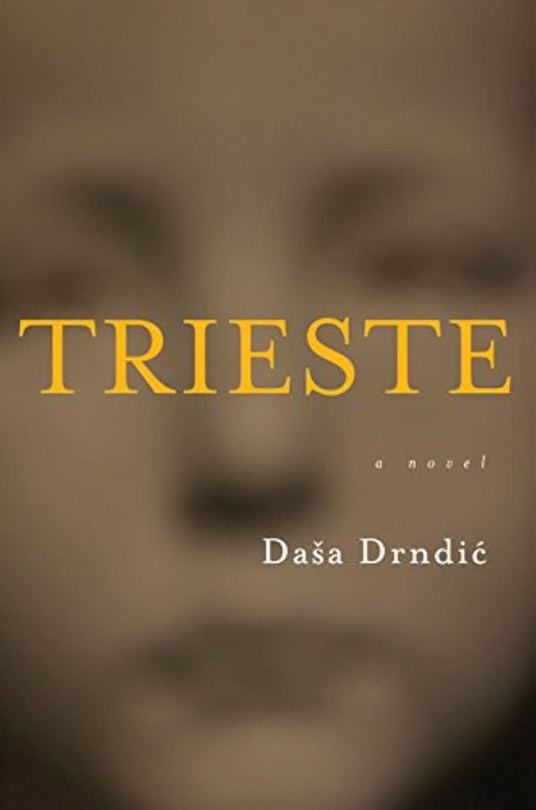
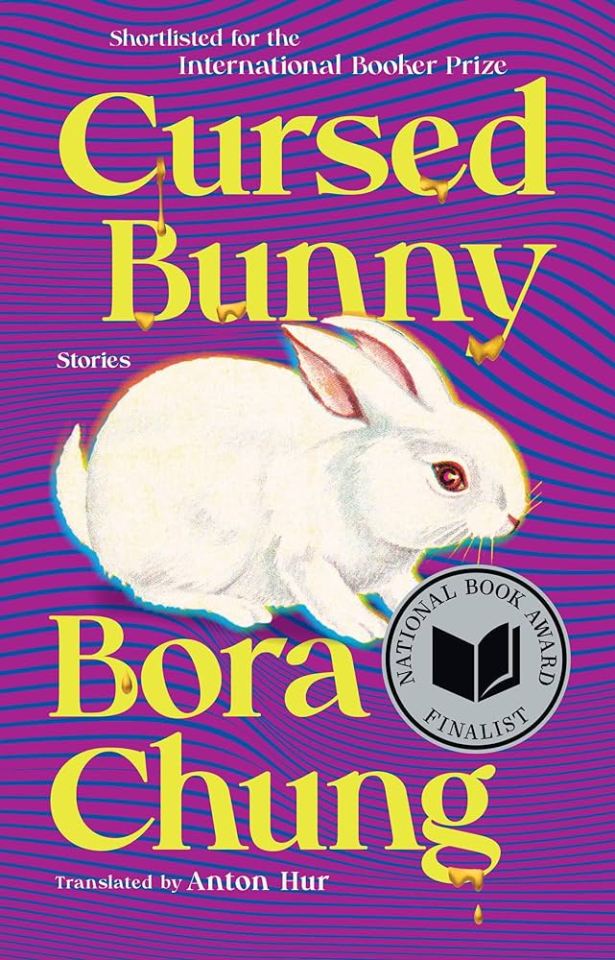
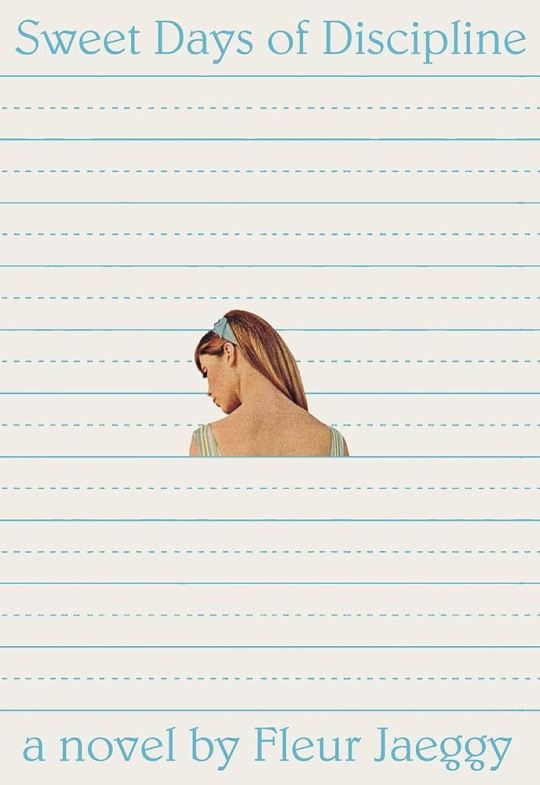
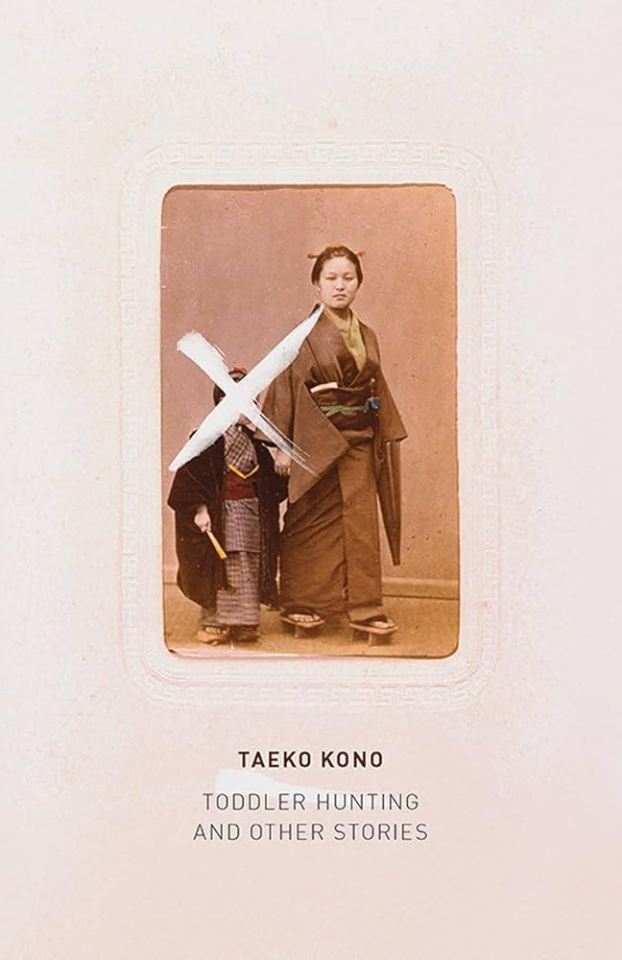
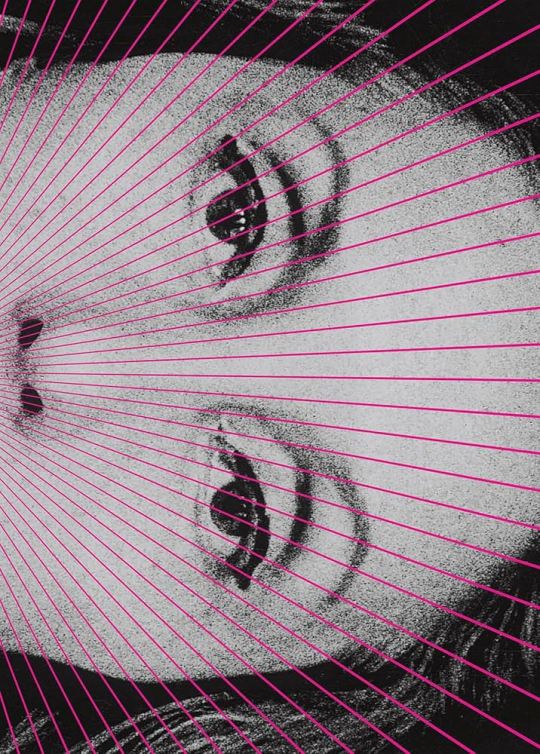
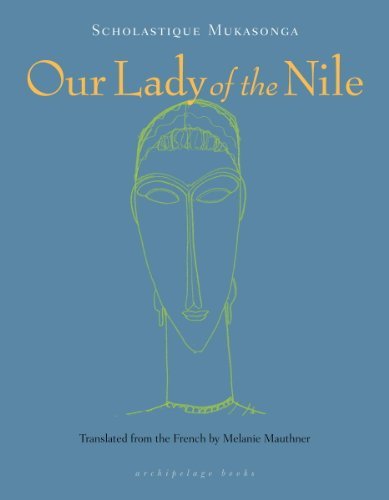
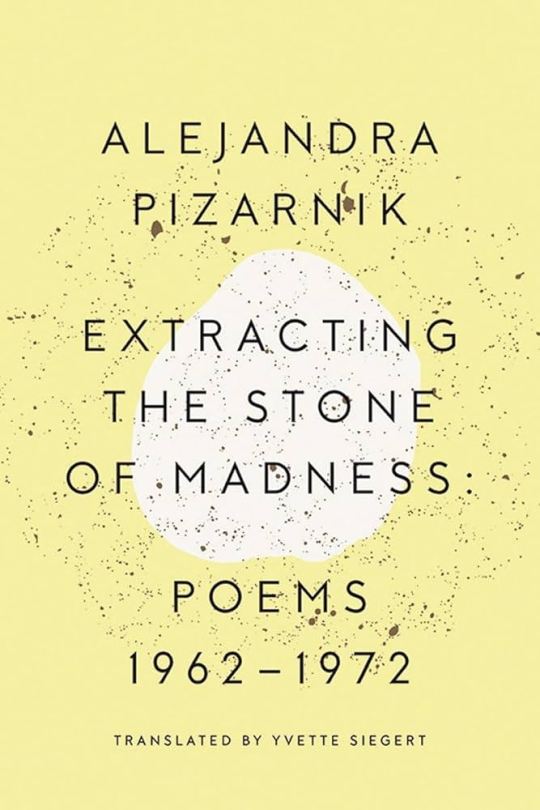
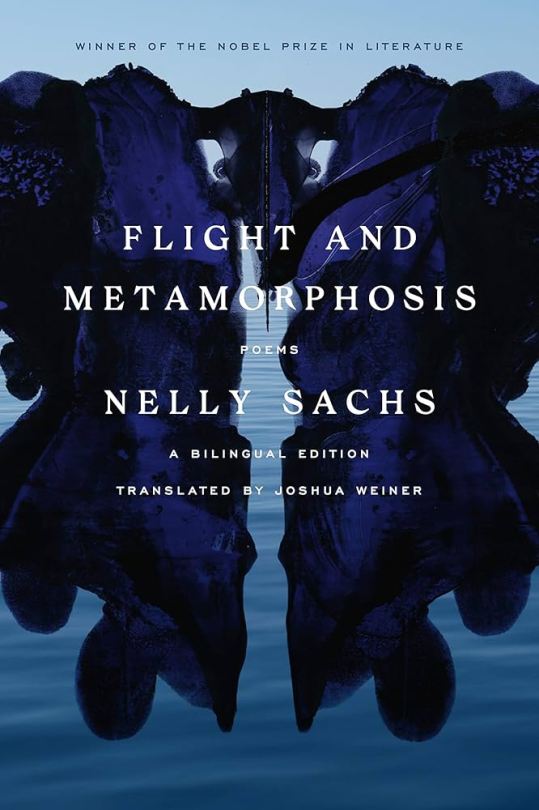
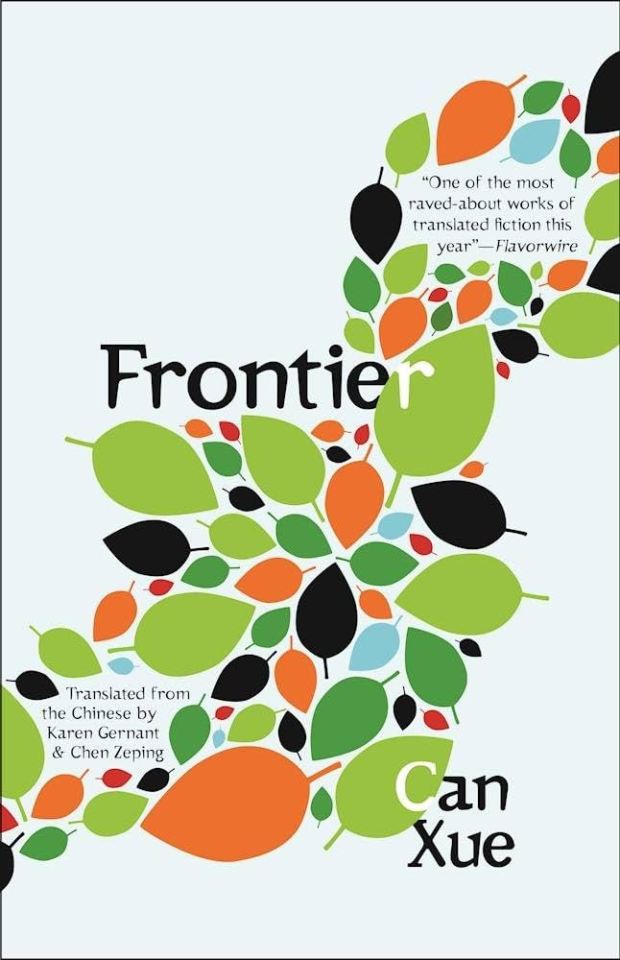
Hi friends! Inspired by @librarycards I wanted to make a post celebrating Women in Translation Month! Anglophone readers generally pay embarrassingly little attention to works in other languages, and that's even more true when it comes to literature by women, so I will jump at any chance to promote my faves 🥰 Here are some recs from 9 different languages! Also, I wrote this on my phone, so apologies for any typos or errors!
1. Trieste by Daša Drndić, trans. Ellen Elias-Bursać (Croatian): An all-time favorite. Much of Drndić's work interrogates the legacy of atrocities in Europe, particularly eastern Europe. Trieste is a haunting contemplative novel centered on an elderly Italian Jewish woman whose family converted to Catholicism during the Mussolini era and were complicit in the fascist violence surrounding them in order to protect themselves.
2. Cursed Bunny by Bora Chung, trans. Anton Hur (Korean): A collection of short stories that are difficult to classify by genre–speculative fiction in the broadest sense. The first story is about a monster in a woman's toilet, which sounds impossible to pull off in a serious, thought-provoking manner, but Chung does so easily—these are the kind of stories that are hard to explain the brilliance of secondhand.
3. Sweet Days of Discipline by Fleur Jaeggy, trans. Tim Parks (Italian; Jaeggy is Swiss): Another all time favorite! The cold, sterile homoerotic girls' boarding school novella of your dreams.
4. Toddler-Hunting and Other Stories by Taeko Kono, trans. Lucy North (Japanese): I think I read this in one sitting. Incredibly unsettling—these stories will stay with you. They often focus on the unspoken psychosexual fantasies underscoring mundane daily life.
5. The Complete Stories by Clarice Lispector, trans. Katrina Dodson (Brazilian Portuguese): I think Lispector is the best known writer here, so she might not need much of an introduction. But what a legend! And this collection is so diverse—it's fascinating to see the evolution of Lispector's work.
6. Our Lady of the Nile by Scholastique Mukasonga, trans. Melanie L. Mauthner (French; Mukasonga is Rwandan): Give her the Nobel! Mukasonga's books, at least the ones available in English, are generally quite short but so impactful. Our Lady of the Nile is a collection of interrelated short stories set at a Catholic girls' boarding school in Rwanda in the years before the Rwandan genocide. These stories are fascinating on many levels, but perhaps the most haunting element is seeing how ethnic hatred intensifies over time—none of these girls would consider themselves particularly hateful or prejudiced, but they easily justify atrocities in the end.
7. Extracting the Stone of Madness: Poems 1962-1972 by Alejandra Pizarnik, trans. Yvette Siegert (Spanish; Pizarnik was Argentinian): Does anyone remember when my url was @/pizarnikpdf... probably not but worth mentioning to emphasize how much I love her <3 Reading Pizarnik is so revelatory for me; she articulates things I didn't even realize I felt until I read her words.
8. Flight and Metamorphosis: Poems by Nelly Sachs, trans. Joshua Weiner (German): Sachs actually won the Nobel in the 1960s, so it's surprising that she's not better known in the Anglosphere. Her poems are cryptic and surreal, yet deeply evocative. Worth mentioning that this volume is bilingual, so you can read the original German too if you're interested.
9. Frontier by Can Xue, trans. Karen Gernant and Chen Zeping (Chinese): Can Xue is another difficult-to-classify writer in terms of genre. Her short stories are often very abstract and can be puzzling at first. I think Frontier is a great place to start with her because these stories are interconnected, which makes them a bit more accessible.
84 notes
·
View notes